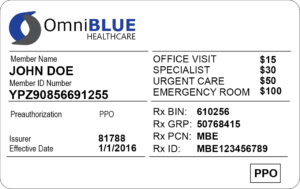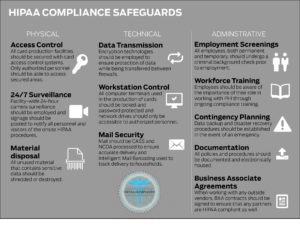What can CPS Cards do for you? We manage the production and fulfillment of thousands of healthcare cards annually. Let us help you too! Contact us or call 888.817.8121 for a quote.
Healthcare Cards: The Risk of In-House Production
There comes a time when every business tries or needs to save money. Maybe corporate management does so by tightening up the purse strings on corporate travel, freezing pay raises for a period of time, or perhaps switching vendors to get a greater volume discount that will help their bottom line. Or maybe they decide to drop a vendor completely and produce materials in-house to achieve a cost-savings.
As a card company, we have been witness to this latter business tactic a few times in recent years. For some companies, card production seems to be a fairly simple process. So, they invest in the equipment necessary to produce and personalize cards, only to learn hundreds of thousands of dollars later that it isn’t as easy as it looks. The truth is, there is much more to card production than meets the eye. Ensuring that artwork colors are spot-on, data has been processed properly and cards are sequenced and packaged accordingly, are only a few of the dozens of steps necessary to successfully execute a card production program. If even one step goes awry, you risk losing money, time, customers and your brand integrity.
 When it comes to healthcare cards, producing cards in-house becomes even more risky and can cost your company millions if you are found in violation of the Health Insurance Portability and Accountability Act (HIPAA) of 1996. For this reason alone, it is wise to employ a HIPAA-compliant vendor, or Business Associate (BA), to produce and mail your healthcare cards and member communications. Over the past two years, the Office of Civil Rights (OCR) has launched a full-scale HIPAA audit program that heavily fines violators that expose Personal Health Information (PHI.) Is it worth the risk?
When it comes to healthcare cards, producing cards in-house becomes even more risky and can cost your company millions if you are found in violation of the Health Insurance Portability and Accountability Act (HIPAA) of 1996. For this reason alone, it is wise to employ a HIPAA-compliant vendor, or Business Associate (BA), to produce and mail your healthcare cards and member communications. Over the past two years, the Office of Civil Rights (OCR) has launched a full-scale HIPAA audit program that heavily fines violators that expose Personal Health Information (PHI.) Is it worth the risk?
THINGS TO CONSIDER WHEN PRODUCING HEALTHCARE CARDS IN-HOUSE
If your company is pondering producing your healthcare cards in-house, there is much that needs to be considered. The following measurements must be implemented to ensure not only HIPAA compliance, but also a successful program.
EMPLOYING HIPAA SAFEGUARDS
To ensure HIPAA compliance, physical, administrative and technical safeguards must be employed.
 DATA PROCESSING
DATA PROCESSING
Do you have an in-house data expert? You will need qualified personnel that is experienced in handling and processing data to ensure that cards and carriers are printed properly. Customers are not always technically savvy, therefore, your data expert(s) will need to analyze issues, remedy problems and create custom programming to meet customers’ unique requirements. A missing column, illegal character or an extra digit are examples of simple data problems that can cause significant delays in production when not managed properly.
TRACKING + REPORTING
Customers that entrust you to handle their PHI, will require tracking and reporting when mailing member communications. Therefore, you must employ software that can provide reporting on a daily, weekly or monthly basis, depending upon the requirements of the customer.
POTENTIAL PITFALLS
Mismatching | Getting the right card to the right person at the right time requires advanced technology. Equipment that utilizes cameras and quality management software will ensure that cards are correctly matched to the proper carrier and mailed promptly to the right recipient. One mismatch is all it takes for it to be considered a breach of privacy that would be subject to civil and/or criminal penalties.
Problem-solving | Card coatings, substrates and special finishes can make card production equipment temperamental. Highly experienced technicians and seasoned production personnel are required to not only keep the equipment running, but also, have the wherewithal to dissect and remedy issues.
Room for error | Some health insurance carriers require personalization of cards for multiple healthcare groups. With each group receiving cards with different artwork, multiple card versions will be required. Management of these materials requires an experienced inventory staff that can process, track and select the correct cards and accompanying materials to be put into production. One error means the wrong data (names) gets placed on the wrong card shells. An experience card vendor can recognize the areas of potential risk before the program begins and can preemptively implement procedures and protocols to reduce the potential for errors.
Fluctuating Volumes | As with gift cards, healthcare cards have a “busy season” and that season is fourth quarter. While health insurers push to fulfill health ID cards in time for the new year, volumes increase dramatically and require proper scheduling to ensure that cards arrive to members at precisely the right time. Outside of busy season, health carriers may need daily, weekly or monthly card fulfillment that varies in volume and may require hand assembly.
THE COST OF COMPLIANCE
Compliance comes with a (possibly) hefty price tag. Consider the following expenses your business will have to incur to remain HIPAA compliant.
The cost to:
- Implement physical (access & camera systems), technical (computer software & servers) and administrative safeguards
- Hire a consultant to ensure compliance and perform annual audits
- Hire experienced staff that is knowledgeable in managing card production
- Hire legal representation if a HIPAA violation occurs
- Remedy any and all HIPAA violations
- Pay fines that can quickly escalate into the millions
There is a lot of risk involved when producing healthcare cards in-house and the biggest risk of all is losing your brand integrity, or even worse, your business. So, ask yourself, is the cost-savings of moving your card program in-house, worth it?